Chlorohydroquinone
Synonym(s):2-Chloro-1,4-dihydroxybenzene
- CAS NO.:615-67-8
- Empirical Formula: C6H5ClO2
- Molecular Weight: 144.56
- MDL number: MFCD00002341
- EINECS: 210-442-8
- SAFETY DATA SHEET (SDS)
- Update Date: 2024-11-15 19:19:13

What is Chlorohydroquinone?
Chemical properties
light brown to grey fine crystalline powder. It precipitates leafy crystals from chloroform and needle-like crystals from toluene. Freely soluble in water and alcohol, slightly soluble in ether and hot chloroform.
The Uses of Chlorohydroquinone
Chlorohydroquinone is a component of polyethers based on organotin with potential application to breast cancer treatment via growth inhibition. Also a component in the synthesis of contraceptive agents in pharmaceutical compounds. It is also used within hydroxylation and catalysis organic reactions in the synthesis of pharmacologically active phenolic compounds.
What are the applications of Application
Chlorohydroquinone is a chlorinated hydroxyphenol
Definition
ChEBI: Chlorohydroquinone is a benzenediol that consists of hydroquinone bearing a single chloro substituent. It has a role as a metabolite. It is a member of monochlorobenzenes and a member of chlorohydroquinones.
Preparation
Chlorohydroquinone is obtained by reacting p-benzoquinone with hydrochloric acid. First dissolve p-benzoquinone with chloroform and pass dry hydrogen chloride gas under cooling to obtain.
What are the applications of Application
Chlorohydroquinone is a benzenediol that consists of hydroquinone bearing a single chloro substituent. It has a role as a metabolite. It is a member of monochlorobenzenes and a member of chlorohydroquinones. Chlorohydroquinone is used in photographic developing solutions. It is also a bactericide.
Safety Profile
Poison by ingestion and intraperitoneal routes. Moderately toxic by skin contact. Experimental reproductive effects. When heated to decomposition it emits toxic fumes of Cl-. See also CHLORIDES.
Purification Methods
Crystallise the hydroquinone from CHCl3 or toluene. [Beilstein 6 IV 5767.]
Properties of Chlorohydroquinone
| Melting point: | 100-104 °C (lit.) |
| Boiling point: | 263 °C (lit.) |
| Density | 1.2558 (rough estimate) |
| refractive index | 1.4620 (estimate) |
| Flash point: | 263°C |
| storage temp. | Inert atmosphere,Room Temperature |
| solubility | DMSO (Slightly), Methanol (Slightly) |
| form | Fine Crystalline Powder |
| pka | 9.21±0.18(Predicted) |
| color | Light brown to gray |
| Water Solubility | soluble |
| BRN | 636835 |
| CAS DataBase Reference | 615-67-8(CAS DataBase Reference) |
| NIST Chemistry Reference | 1,4-Benzenediol, 2-chloro-(615-67-8) |
| EPA Substance Registry System | Chlorohydroquinone (615-67-8) |
Safety information for Chlorohydroquinone
| Signal word | Danger |
| Pictogram(s) |
 Corrosion Corrosives GHS05  Exclamation Mark Irritant GHS07 |
| GHS Hazard Statements |
H315:Skin corrosion/irritation H317:Sensitisation, Skin H318:Serious eye damage/eye irritation H335:Specific target organ toxicity, single exposure;Respiratory tract irritation |
| Precautionary Statement Codes |
P280:Wear protective gloves/protective clothing/eye protection/face protection. |
Computed Descriptors for Chlorohydroquinone
New Products
4-AMINO-TETRAHYDRO-PYRAN-4-CARBOXYLIC ACID HCL 4-(Dimethylamino)tetrahydro-2H-pyran-4-carbonitrile 4-Aminotetrahydropyran-4-carbonitrile Hydrochloride (R)-3-Aminobutanenitrile Hydrochloride 3-((Dimethylamino)methyl)-5-methylhexan-2-one oxalate 1,4-Dioxa-8-azaspiro[4.5]decane 5-Bromo-2-nitropyridine Nimesulide BP Aceclofenac IP/BP/EP Diclofenac Sodium IP/BP/EP/USP Mefenamic Acid IP/BP/EP/USP Ornidazole IP Diclofenac Potassium THOMAIND PAPER PH 2.0 TO 4.5 1 BOX BUFFER CAPSULE PH 9.2 - 10 CAP SODIUM CHLORIDE 0.1N CVS ALLOXAN MONOHYDRATE 98% PLATINUM 0.5% ON 3 MM ALUMINA PELLETS (TYPE 73) LITHIUM AAS SOLUTION 2-Bromo-1-(bromomethyl)-3-chloro-5-nitrobenzene 2-Bromo-3-nitroaniline N-(3-Hydroxypropyl)-N-methylacetamide 3-Bromo-6-chloropyridazine 4-ethyl-3-nitrobenzoic acidRelated products of tetrahydrofuran
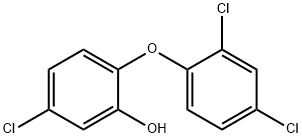
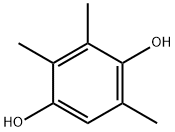
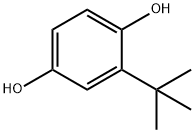

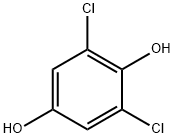
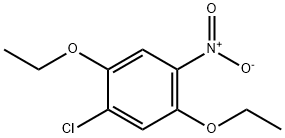

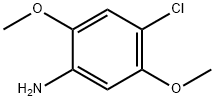
You may like
-
 Chlorohydroquinone 90% CAS 615-67-8View Details
Chlorohydroquinone 90% CAS 615-67-8View Details
615-67-8 -
 Chlorohydroquinone CAS 615-67-8View Details
Chlorohydroquinone CAS 615-67-8View Details
615-67-8 -
 Chlorohydroquinone CAS 615-67-8View Details
Chlorohydroquinone CAS 615-67-8View Details
615-67-8 -
 1823368-42-8 98%View Details
1823368-42-8 98%View Details
1823368-42-8 -
 2-(3-(tert-butyl)phenoxy)-2-methylpropanoic acid 1307449-08-6 98%View Details
2-(3-(tert-butyl)phenoxy)-2-methylpropanoic acid 1307449-08-6 98%View Details
1307449-08-6 -
 Ethyl 3-(furan-2-yl)-3-hydroxypropanoate 25408-95-1 98%View Details
Ethyl 3-(furan-2-yl)-3-hydroxypropanoate 25408-95-1 98%View Details
25408-95-1 -
 2-Chloro-5-fluoro-1-methoxy-3-methylbenzene 98%View Details
2-Chloro-5-fluoro-1-methoxy-3-methylbenzene 98%View Details
1805639-70-6 -
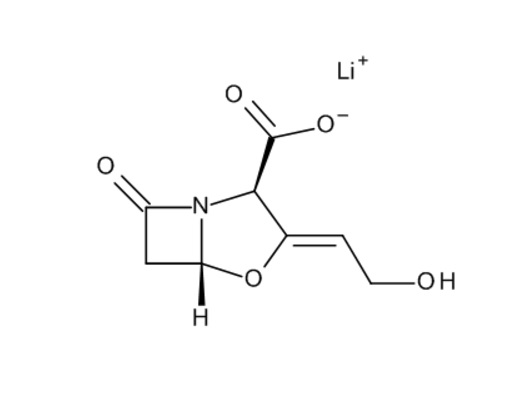 Lithium ClavulanateView Details
Lithium ClavulanateView Details
61177-44-4